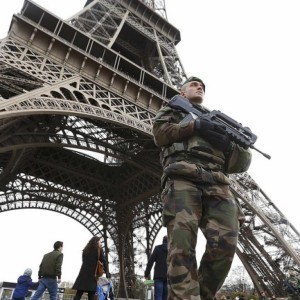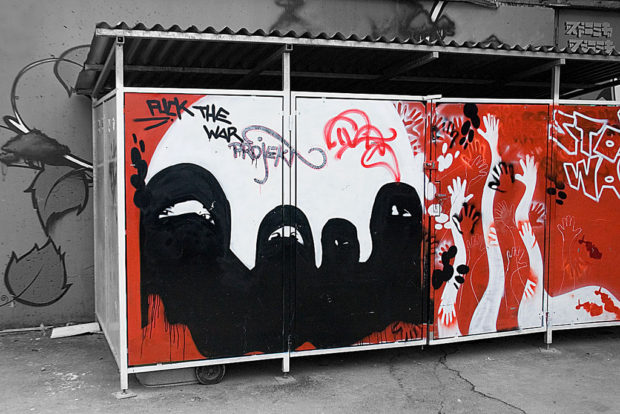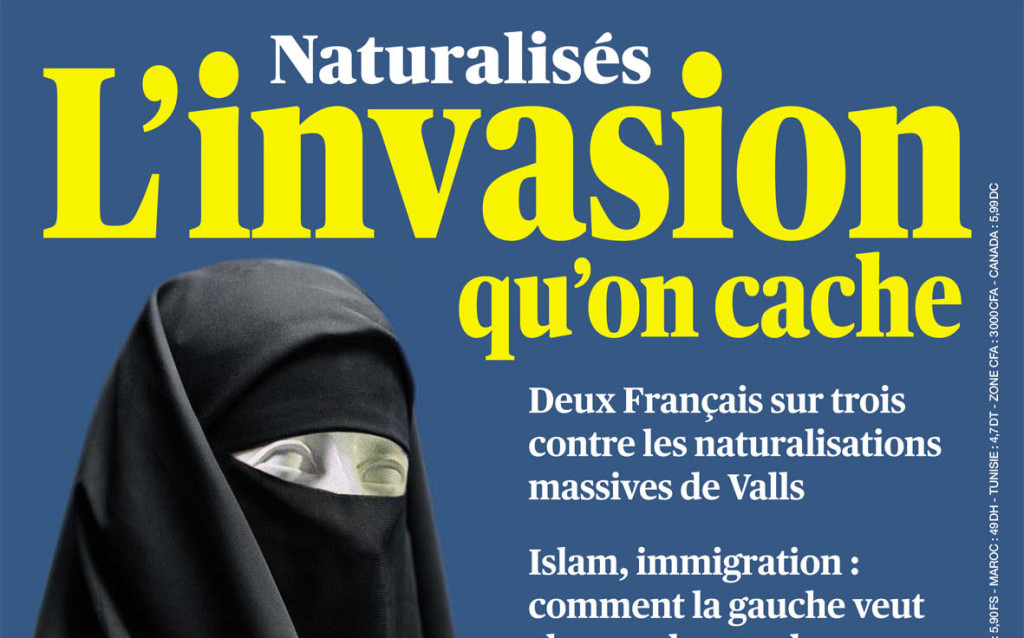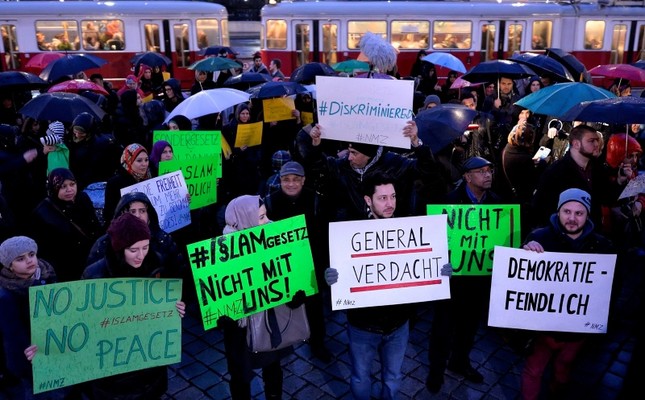Alfonso Casani – FUNCI
The rise of Islamophobia in Europe in recent years is nothing new, nor is the adoption of a “securitarian” approach towards the Muslim communities living in Europe since the beginning of the 21st century and the tragic attacks of 9/11 in New York. In recent months, these European policies have provided shocking evidence of their clear antagonism towards the Muslim population.
The approval of the controversial law against “separatism” by the French National Assembly, the shocking campaign of arrests against Muslims launched in Austria, and the prohibition of the burqa in Switzerland via referendum on March 7 are clear examples of the vulnerability of rights of the Muslim population, framed in a discourse of fight against “political Islam” or radical Islamism.
This process of emphasizing security policies results in an increased control of the Muslim population, not only by security forces, but also through the legislation and administration in general, which contributes to restricting the religious freedoms of the Muslim community (Cesari, 2013).
The burqa and its absence in Europe
This process of emphasizing security policies results in an increased control of the Muslim population, not only by security forces, but also through the legislation and administration in general.
Few issues have generated as much controversy in Europe as the wearing of the burqa and niqab, which has led to a strong social polarization and is often used to support the idea of women’s submission in Islam, avoiding the cultural (rather than religious) connotations surrounding this garment. The suppression of the burqa in Europe (even though it is an exclusively Afghan clothing, that no one wears in the West) counts with a broad consensus from the far-right, but also from large sections of the feminist movements. As explained by the researcher Gil-Benumeya, it has become a transversal, “post-political” phenomenon, blurring the traditional fractures between left and right.
Over the last decade, different European countries have adopted restrictive legislations over this clothing, banning its dress in public spaces: France and Belgium in 2010, Bulgaria and the Netherlands in 2016, Austria in 2017, and a few days ago, Switzerland. A striking detail of all these cases highlights the ideological character underpinning these regulations: there are hardly any Muslim women wearing not only the burqa, but also the niqab (or full-face veil) in this continent, apart from a few tourists from the Gulf, as seen in Switzerland.
No one misses the irony of the Swiss referendum being held during the current global pandemic, in a context where the use of facial masks is mandatory.
A recent study, prior to the plebiscite in Switzerland, estimated the number of women wearing the niqab in the country at 20-30 people. With a national population of 8.6 million, approximately 5% of the population is Muslim, in other words 390,000 people. Of these, only 0.007% wear this clothing. Calculating this figure over the total percentage of the population gives a result that can only be understood as anecdotal.
The same situation is found in all the countries mentioned, where in no case does the number of women wearing a burqa or niqab reach the figure of 0.1% of the total number of Muslims in the country, nor does it reach a hundred people. Only in France the figure amounted to 1,900 people in 2011, prior to its ban, and it still represented only 0.04% of the total Muslim population of the country.
No one misses the irony of the Swiss referendum (which achieved a “yes” with a very close 51.2% of votes in favor) being held during the current global pandemic, in a context where the use of facial masks is mandatory.
Political Islam as a security problem
Days before the referendum, deputy Walter Wobmann, chairman of the referendum committee, justified the initiative to ban the burqa by explaining that it is a “symbol of this extreme political Islam which has become increasingly prominent in Europe and which has no place in Switzerland”.
Regardless of its reference to this garment, this is not the first time that “political Islam” has been used as a justification for restricting the rights of the Muslim population. On the contrary, it is an increasingly common narrative, linking political Islam to the general Muslim population and helping to portray them as a threat to the political system in European countries.
Without dwelling too much on this notion, political Islam refers to the ideological currents that blur the public and private spheres and pursue the transformation of the political system in accordance with the values enunciated in the Quran (Fuller, 2003). There is a wide variety of ideological interpretations of Islam, as well as a multiplicity of Islamist movements, all of which are determined by the political and historical contexts of the environments in which they have emerged (Ayoob, 2008). Of course, there are also Muslims who do not ascribe to these ideological currents, who confine their beliefs to the individual sphere. The narrative adopted by an increasing number of European political parties is based on the classic orientalist reductionisms that understand Islam as a monolithic religion, opposed to “Western values”. This perception facilitates the adoption of a securitarian approach to Islam, which shifts its management to the security sphere and justifies the restriction of the rights and freedoms of Muslim communities living in Europe.
 It is in this context that we place the controversial speech of French President Emmanuel Macron on October 2, 2020 against “Islamist separatism”. This idea, with a poorly defined conceptual basis, has been opposed to the respect of secularism and the values of the French Republic, and has served as a framework for the promulgation of the bill “to reaffirm republican principles”. This aims to confront separatism and offenses against citizens, and points specifically to radical Islamism. This text, approved by the National Assembly and awaiting debate in the Senate, will impose religious neutrality among public employees, and will increase control over the training of imams and the financing of religious foundations. The bill has been widely criticized for its stigmatizing approach to Islam and its opposition to French values.
It is in this context that we place the controversial speech of French President Emmanuel Macron on October 2, 2020 against “Islamist separatism”. This idea, with a poorly defined conceptual basis, has been opposed to the respect of secularism and the values of the French Republic, and has served as a framework for the promulgation of the bill “to reaffirm republican principles”. This aims to confront separatism and offenses against citizens, and points specifically to radical Islamism. This text, approved by the National Assembly and awaiting debate in the Senate, will impose religious neutrality among public employees, and will increase control over the training of imams and the financing of religious foundations. The bill has been widely criticized for its stigmatizing approach to Islam and its opposition to French values.
Anti-terrorism and repression in Austria
The enactment of a new anti-terrorism law in Austria, which relies on a harsh discourse against political Islam and its dangers for the country, moves along these same lines. This narrative, common to most political parties and not only to the former far-right government, took on a more pronounced tone after the November 2, 2020 attack in Vienna, in which four people were killed in a shooting in the capital.
The narrative adopted by an increasing number of European political parties is based on the classic orientalist reductionisms that understand Islam as a monolithic religion, opposed to “Western values”.
On the eve of the attack, the Austrian Chancellor, Sebastian Kurz, promised a tightening of anti-terrorist laws in the fight against “political Islam, the ideological basis [of these attacks]”. Although the direct allusion to this term was later withdrawn, the law envisages controversial measures such as the creation of an official register of imams, or, above all, the monitoring and possibility of banning “extremist religiously motivated associations” that could pose a threat to the country’s democratic values. This measure includes the possibility of carrying out preventive arrests of persons suspected of radicalization or with links to radical associations.
In this context, a campaign of arrests was launched against more than 60 Muslim academics and activists on November 9, 2020, including the arrest of the celebrated academic Fared Hafez, a well-known critic of the Islamophobic drift the country is experiencing. Accused of supporting terrorism, hostility to the state and money laundering, Hafez’s accounts have been frozen, and his materials seized, awaiting a trial that has not yet been formalized.
The following video, released by Hafez himself as part of a fundraising campaign to compensate for the freezing of his accounts, details these events and delves into the situation of Muslims in Austria.
A new consensus on Islam?
The events described above have several worrying points in common: first of all, and as discussed throughout the article, they all adopt a securitarian approach towards Islam and Muslims in Europe, which justifies the adoption of measures that increase prejudice and restrict the rights of Muslim communities. This perspective is built on the notion of political Islam or Islamism, used as a vague and ill-defined category that serves as an umbrella to agglutinate a set of identifications plagued with prejudices, which oppose Islam to democracy or European values.
Even more worryingly, and in contrast to what has been pointed out on previous occasions, the legal provisions identified in this article do not come from extreme right-wing parties but have the support and approval of a wide range of parties from all the political spectrum, with the connivance of a significant part of the population. This leads us to ask ourselves – in what would be a terrible conclusion –, is the political and social consensus regarding Islam shifting towards new exclusionary and stigmatizing positions?
Translation: Tristan Semiond – FUNCI
References
Ayoob, M. (2008). The Many Faces of Political Islam: Religion and Politics in the Muslim World. University of Michigan Press: Míchigan.
Cesari J. (2013). “Securitization of Islam in Europe: The Embodiment of Islam as an Exception”, Why the West Fears Islam. Culture and Religion in International Relations. Palgrave Macmillan: New York.
Fuller, G. (2003). The Future of Political Islam. Palgrave Macmillan: New York.
Gil-Benumeya, D. (2020). “La islamofobia progresista: discursos y agentes”, II Congreso Nacional “Desmontando la Islamofobia”, 24-26/11/2020. Publicado en: https://twistislamophobia.org/2020/12/04/la-islamofobia-progresista-discursos-agentes/


















No Comments